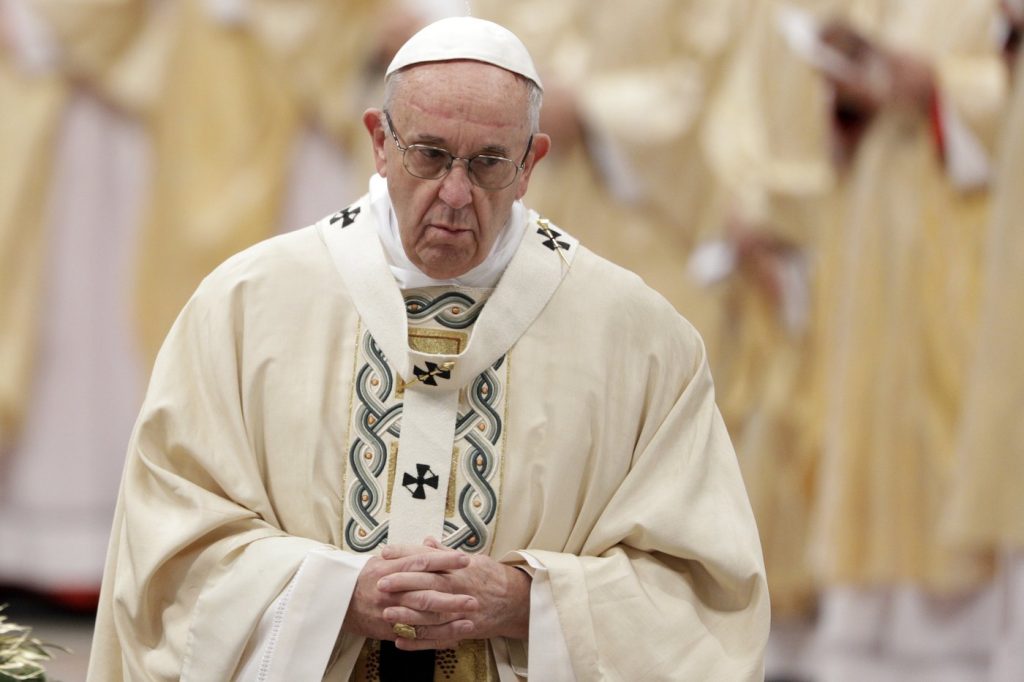VATICAN CITY – Few could have predicted that a comment Pope Francis made during a 2018 visit to Chile would escalate into the most significant crisis of his papacy, ultimately reshaping the Catholic Church's approach to clergy sexual abuse accountability. The pope, when asked about Bishop Juan Barros—who was accused by victims of covering up the actions of Chile’s notorious pedophile, Rev. Fernando Karadima—defended him vehemently, stating, “not one shred of proof against him. It’s all slander. Is that clear?” His response resonated negatively in Chile, a nation grappling with a painful history of clergy abuse, and led to a swift rebuke from his top child protection adviser.
However, in an unexpected turn, rather than doubling down on his defense, Pope Francis initiated an investigation that led him to acknowledge his error, apologize to the victims he initially discredited, and even facilitated the resignation offers from the entire Chilean episcopate. This became one of the most significant corrective actions of the modern papacy. According to papal biographer Austen Ivereigh, “He recognized his mistakes. He learned from them. He said ‘sorry.’ And he put it right.”
Initially, the election of Francis in 2013 as the first Latin American pontiff had raised concerns among abuse survivors regarding his awareness and response to abuse. Despite establishing a sex abuse commission, which was led by Boston's Cardinal Sean O’Malley, its influence waned over time, and critical recommendations—such as creating a tribunal to adjudicate bishops involved in cover-ups—remained unrealized.
During the problematic visit to Iquique, Chile, Francis faced questions regarding Bishop Barros, who had come under fire for allegedly witnessing and concealing the crimes of Karadima, against whom multiple accusations had emerged. Francis’s unwavering support for Barros, influenced by Cardinal Javier Errazuriz, faced backlash, prompting media inquiries on the return flight that ultimately led the pope to commission an investigation into the Chilean Church. Subsequently, he realized he had been misinformed by his advisors.
The significance of 2018 deepened for Pope Francis as he later described it as a pivotal year—a moment of “conversion” regarding abuse issues, a change that he attributed to the journalists who boldly confronted him. “I couldn’t believe it. You were the one on the plane who told me, ‘No, that’s not the way it is, Father,’” he said in a 2023 interview with the Associated Press, signifying the moment that revealed the corruption surrounding many bishops.
As 2018 progressed, Francis’s response to the Chile crisis began to fade into the background when the next scandal erupted involving U.S. Cardinal Theodore McCarrick. In July, Francis removed the influential cleric after credible allegations surfaced regarding McCarrick having groped a teenage altar boy in the 1970s. Reports from other former seminarians indicated that McCarrick had a history of sexual misconduct, known widely within U.S. and Vatican leadership circles.
Despite taking decisive action against McCarrick, a former Vatican ambassador's denouncement accused Francis of complicity in the cover-up, claiming that he was informed about McCarrick’s misconduct at the beginning of his papacy in 2013. In a significant turn of events, a two-year investigation was authorized, which ultimately exonerated Francis and instead implicated his predecessors and other church leaders who failed to act against McCarrick.
Following these crises, Pope Francis intensified his commitment to holding the Church hierarchy accountable for covering up abuse. In 2019, he gathered the heads of bishops’ conferences globally at the Vatican to stress the urgency of preventing abuse and punishing those responsible for it. Changes, including the removal of the “pontifical secret” surrounding abuse cases and the requirement for church personnel to report allegations internally, signaled a move towards transparency and accountability.
Despite these implemented reforms, questions concerning accountability persisted, particularly with respect to Argentine Bishop Gustavo Zanchetta, who was convicted of abusing seminarians and whom Francis had provided refuge in the Vatican. Additionally, concerns lingered regarding Fr. Julio Grassi, whose prior conviction was ignored by Francis during his tenure as archbishop of Buenos Aires, raising further scrutiny over the pope’s commitment to justice for abuse victims.
As the Catholic Church continues to grapple with the ramifications of these cases, advocates for victims insist that genuine accountability requires Pope Francis to address the detrimental actions taken under his watch, reflecting a complex and ongoing journey towards integrity within the institution.











